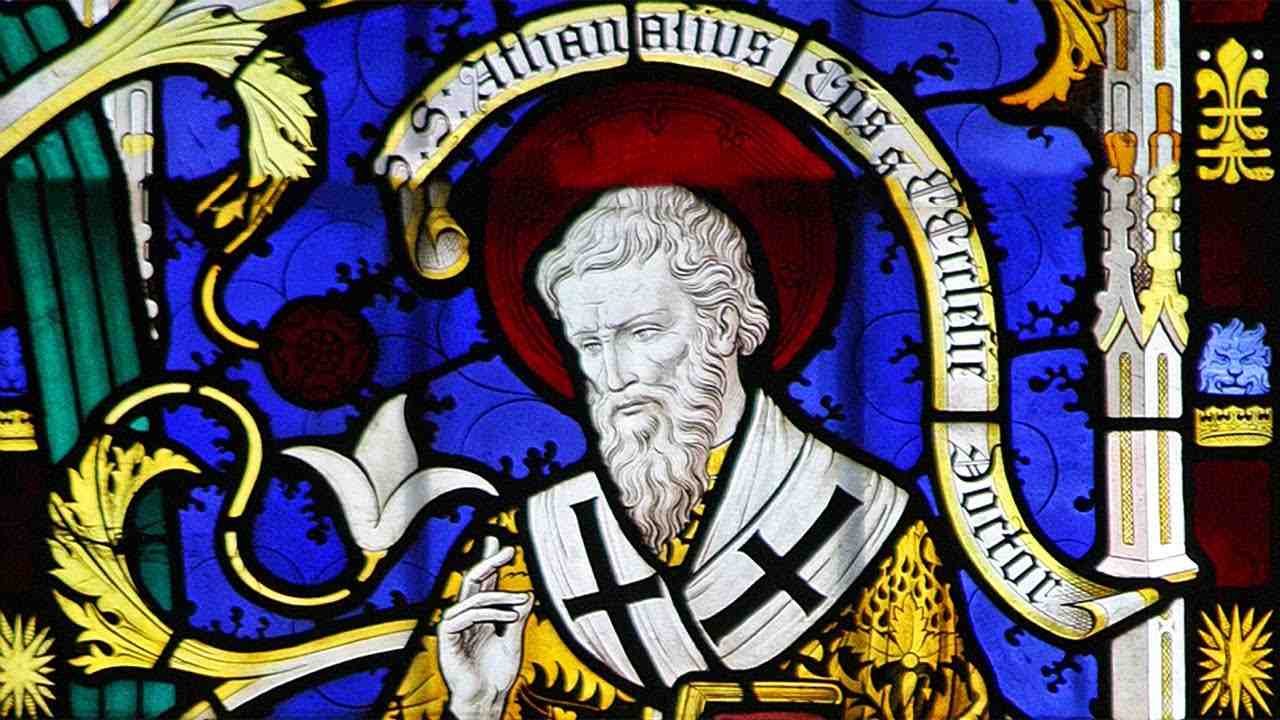Saint Athanasius and the Power of the Word

Today, we commemorate the departure of the great Patriarch, Saint Athanasius the apostolic, the 20th pope of the see of Saint Mark the evangelist.
Saint Athanasius (297 AD - 373 AD) lived in a difficult period of the church history where the most serious challenges came from within rather than outside. After a period of severe persecution, the decree of religious liberty (the decree of Milan) came in 313 AD, and the external storms of the Roman persecution calmed down, but the Arian heretic doctrine began to attack the faith from the inside, for Arius was originally a priest. This Aryan conflict, which lasted for about half a century, even after the death of Arius in 335 AD, violently shook the church from within and was accompanied by much political cunningness, despicable conspiracies, and abuse of power. Therefore, many of the Orthodox bishops around the world suffered, some were killed, some were poisoned, some were exiled outsides their sees, and some fled from death and disappeared staying away from their congregations. We can only imagine the condition of the church at that time of turmoil and disarray, nonetheless, Saint Athanasius was the rock which supported the faith of the Church at that difficult time.
In my view, the secret of the success of saint Athanasius under such antagonistic conditions is his closeness to the Word of God and his passion for reading and his honest search into the depths of the Word, as well as a saintly and faithful life. He was raised since his young age to love the Bible, enjoy reading it and memorize its verses, research and explore its lovely mysteries, and continually transform its teaching into living conduct. As his mind became saturated with divine reflections and as he experienced the influence of the Bible in his life, he developed a strong faith in the mighty Word of God, and believed that it is mightier than all weapons and that it cannot be chained (2 Timothy 2: 9). Therefore, he persevered throughout his life in trading with this live, and life-giving, Word.
He didn’t have worldly means and unlike Arius and his followers, he didn’t like to be close to the emperors and rulers of his time and neither did he have worldly influence of any kind. Nevertheless, he had the mightier weapon, the word of God dwelt in him richly (Colossians 3:16), so he brought out of his treasure things new and old (Matthew 13:52).
Since his early adolescence, he began writing to inspire the believers. In his early twenties, he wrote his first book “Against the Heathen”, then he immediately wrote his famous book, “On the Incarnation” which explains some of the most important Christian doctrines in a simple and profound manner at the same time. This book continues to be a reference in Christian Theology for many generations. Since he took the responsibility of the Patriarchate in 328 AD, he was keen to write a comprehensive spiritual and doctrinal message to his people every feast of the Resurrection, which are called Easter letters. During his 45 Papal years, he did not stop writing these letters regardless of how dire the circumstances were. These letters contained many doctrinal commentaries based on Biblical teachings, as well as spiritual and behavioral guidance. He was also interested in writing many messages to bishops, priests, and monks to answer their questions and explain to them many theological issues and to guide them on how to pass on this Orthodox Biblical Dogma to others.
Regarding the times of separation from his see, which occurred five times and for a total period of 19 years due to exile or getting away from the danger of the Arian criminals, he took advantage of them to write. For he believed that the dark cloud of persecution and tribulations will vanish, but the Word of God cannot vanish, but will continue to be light, nurture, and be a source of strength for generations. So he wrote many writings against the Arians to refute all their untrue claims and their evil thoughts, and to repudiate them with hundreds of verses from the Scriptures which affirms the Divinity of Christ. He also fully explained, with sound logic, the verses that they used [in their claims] in order to make the believers established in their faith and to clarify the pure teachings to them.
All these writings are available to us till today, and many of them are translated to Arabic as well, and I encourage everyone to read them.
Furthermore, because he believed in the importance of writing, during one of his exiles to Europe after the departure of Saint Anthony (251 AD - 356 AD), Saint Athanasius was keen on writing the biography of this saint. This book was the reason of spreading monasticism in the west, and for many foreigners to come to Egypt, see for themselves, and learn at the hands of the Fathers of monasticism.
Thus was the conviction of Saint Athanasius regarding the power of the word, it became his nurture, consolation, and also his weapon against the violence and craftiness of the wicked. Saint Athanasius was victorious because he relied on the Word of God, relied on the love of Christ and His knowledge, relied on the light of Truth, and relied on a living Word that will never vanish.